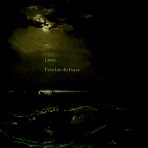The male vocal ensemble Cantus offers a program based on songs of the sea (or in one case, a Great Lake). It’s as diverse a collection as you can imagine, ranging from Charles Stanford’s cycle Songs of the Sea Op. 91 and Amy Beach’s Sea Fever, to two significant Veljo Tormis pieces, Peter Schickele’s rousing Jonah’s Song, a world-premiere by Edie Hill, and arrangements of Sting’s Valparaiso and Gordon Lightfoot’s Wreck of the Edmund Fitzgerald. The quick verdict on this is that if you enjoy male-voice choral music, you’ll appreciate the rich, warm sound, precision ensemble technique, and colorful repertoire presented by this Minnesota-based professional ensemble.
While I never have understood the fascination with the stylistically common, creatively undistinguished (if ably crafted) music of Amy Beach, Cantus performs her Sea Fever with appropriately robust energy–but proves far more impressive in Peter Schickele’s setting of lines from Moby Dick, a real “guy” song if ever there were one! Other highlights include Stanford’s rarely-heard Songs of the Sea (with its especially lovely “Homeward Bound” and G&S-like “The Old Superb”) and the two Tormis works, the first of which, a set of eight “songs of the ancient sea”, is a real tour de force–vocally demanding in many ways (including imitating sounds of the sea, seagulls, the shouts of sailors) yet always engaging, colorful, dramatic, and uncannily evocative. Cantus is in top form here in a work that would be great to hear live.
Less successful is the rendition of Gordon Lightfoot’s “Wreck of the Edmund Fitzgerald”, which in this version comes off as merely a nice song, missing the dark, cold, lonely atmosphere of foreboding that the original conveys so frighteningly well. The world-premiere of Edie Hill’s A True Heart is Waiting is a powerful performance of a work that combines a variety of textural, harmonic, and stylistic effects with carefully, sensitively devised word-setting, and it makes a satisfying conclusion to a solid, beautifully sung program.
Normally that would end the review, however, I must add a caution regarding the packaging. I once worked for a publisher who insisted that no one should ever allow an art director to design anything that people would be expected to read. As a lover of design, I always laughed at his attitude–except that this disc’s packaging, beautiful and arty as it is, confirms my old boss’ conviction: the paper, the color, and the fancy calligraphy make the liner information virtually impossible–or at least quite frustrating–to read. And that’s unfortunate since the song texts (there are no notes on the music itself), especially in the works by Tormis and Hill, are important and enhance our enjoyment of the music. The “ship’s log” concept may be interesting and “fun”, but its poor execution doesn’t measure up to the success exemplified in the rest of this fine, beautifully sung production.
































